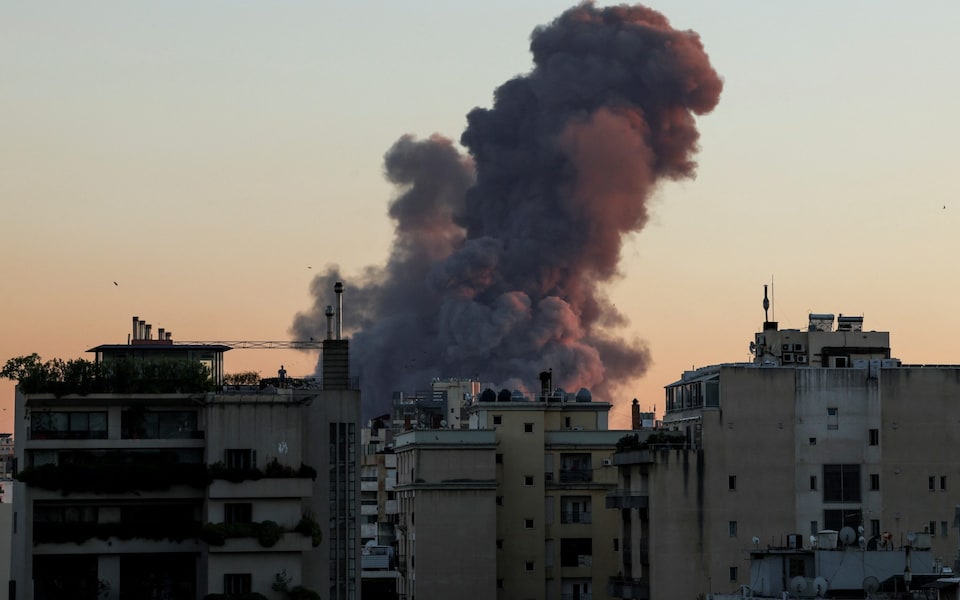This time, on Friday evening, Israel launched its most comprehensive airstrike so far against Hezbollah’s fighters, striking the organisation’s central headquarters in Beirut and killing its leader, Hassan Nasrallah. The IDF (Israel Defense Forces) bombed the building that Hezbollah uses as its headquarters, causing multiple explosions and a cloud of smoke to rise over the southern Beirut suburb of Dahiyeh, a Hezbollah stronghold that’s been the primary target of Israeli airstrikes over the past several weeks, including earlier skirmishes against high-level Hezbollah officials.
Israeli officials assert that the strike on the residence might have been precise enough to hit Nasrallah – though Reuters and the Iranian-backed Tasnim News Agency both reported that he survived. Hezbollah associates, including multiple senior operatives, have confirmed Nasrallah was not killed in the strike.
The airstrike followed discussion between the Israeli prime minister Benjamin Netanyahu, the Defence minister Yoav Gallant and the IDF Chief of Staff Herzi Halevi. The operation was conducted as part of Israel’s plans to degrade Hezbollah’s terror infrastructure, the IDF charging that the organization housed its centre of operations beneath residential buildings and uses the civilians as human shields. ‘This building is a hub of Hezbollah terror activities and Hezbollah’s terror activities are coordinated from this location,’ the IDF spokesman Rear Admiral Daniel Hagari told the press.
Lebanon’s emergency services swung into action, with ambulances and civil defence brigades rushed to the scene and damage described as ‘massive’ across parts of Dahiyeh. The Lebanese government reportedly sent reinforcements of all ambulances available to help with the response.
Tensions between Israel and Hezbollah have spiralled in recent months after nearly a year of missile, rocket and drone strikes from the militant organization targeting Israeli civilians. These have been met by several preemptive Israeli strikes, with Israeli prime minister Netanyahu frequently warning in recent months of further action if the attacks continue. ‘Israel is acting to defend its citizens from outside aggression, just like any sovereign state would be expected to do,’ Hagari recently said.
The strike provoked a strong international response as well. The Iranian embassy in Beirut described it as a ‘bloody massacre’, which ‘added a dangerous escalation to an unprecedented level of hostilities, and [would] bear the responsibility of retaliation’ in a statement accusing Israel of ‘state terrorism’. According to Al-Manar TV – the mouthpiece of Hezbollah – numerous successive airstrikes were executed across Beirut following Netanyahu’s public declaration of ‘raising the bar’ in Israel’s campaign against the group. Just last week, Israeli forces conducted airstrikes on 16 senior members of Hezbollah’s command, including its Radwan Force commander, Ibrahim Aqil, and its drone unit leader, Muhammad Hossein Sarur.
Indeed, both the US defense secretary Lloyd Austin and the US president Joe Biden reportedly had not been briefed on the strike, despite Israel insisting it had notified Washington beforehand. Reuters later reported that the Pentagon had confirmed that the US was informed of the operation midway through the strike. Biden later claimed that the US ‘had learned’ of Israel’s ‘intent to go ahead with this strike’ but was not informed ‘at that moment that they were going to go ahead with it’.
This latest strike is part of Israel’s effort to roll back Hezbollah’s military capacity. The IDF again declared that it ‘will continue to maintain full operational and intelligence readiness to carry out both offensive and defensive operations as the events in Lebanon unfold’. Israeli leaders continue to consider military action against Hezbollah necessary, along Israel’s northern border, to neutralize the threats posed by Hezbollah.
The strategic significance of this strike will likely continue to reverberate through regional dynamics for years to come, as long as Israel and Hezbollah remain on a collision course. For additional updates on this unfolding story, check out articles from The Jerusalem Post and Al Jazeera.

